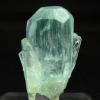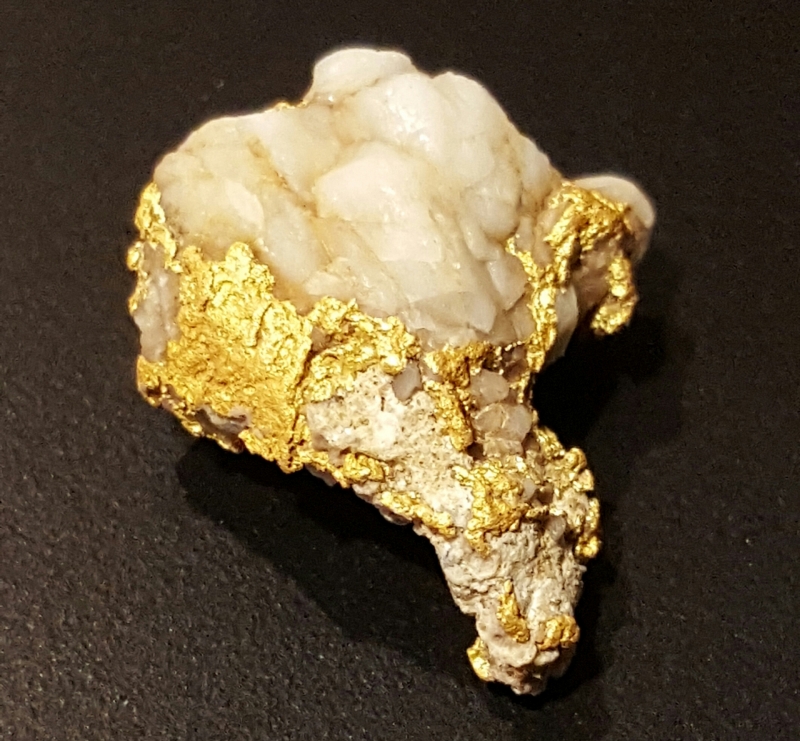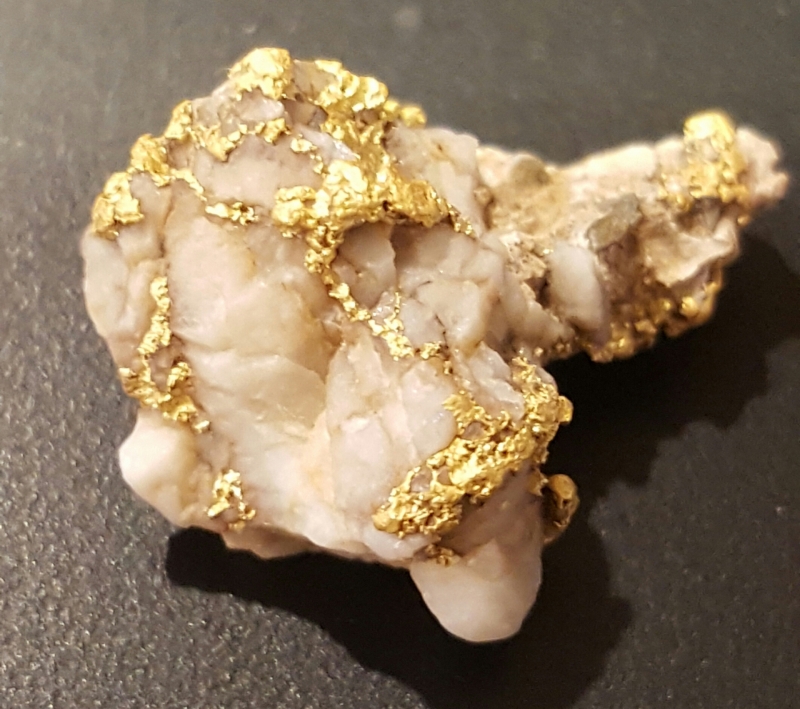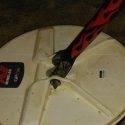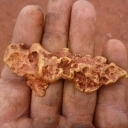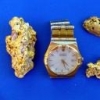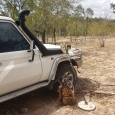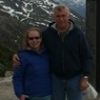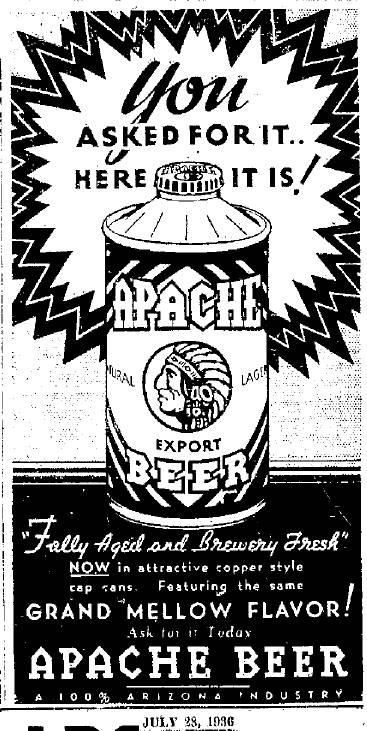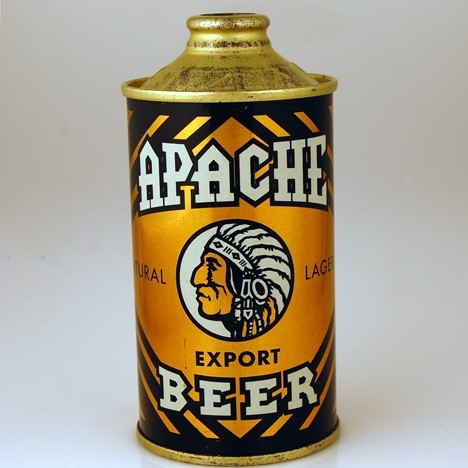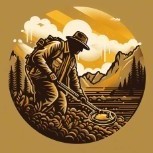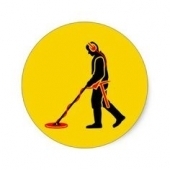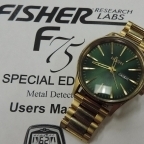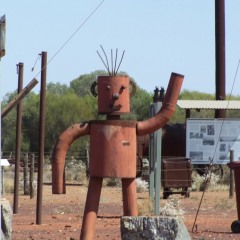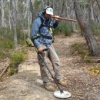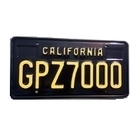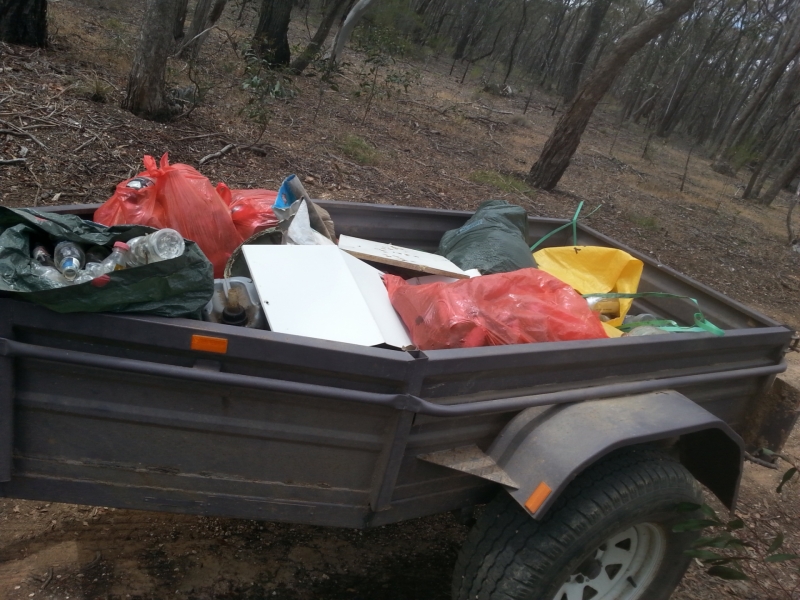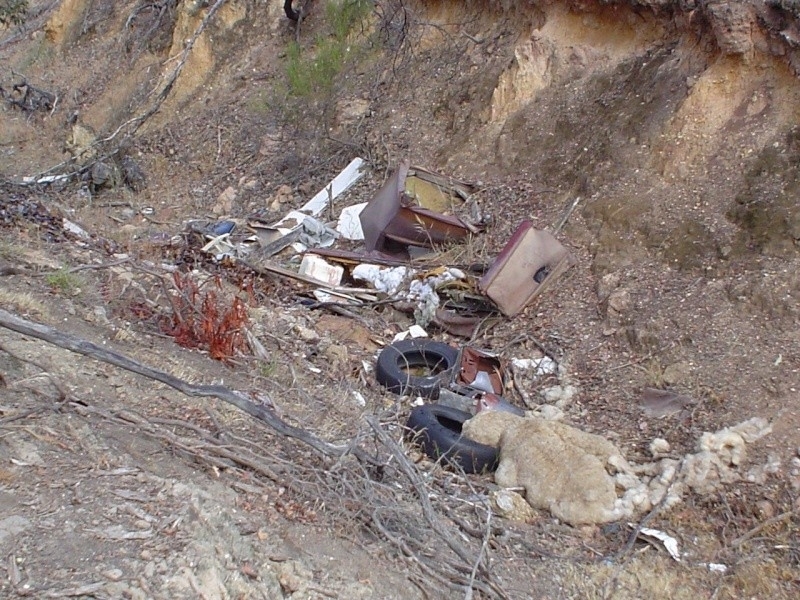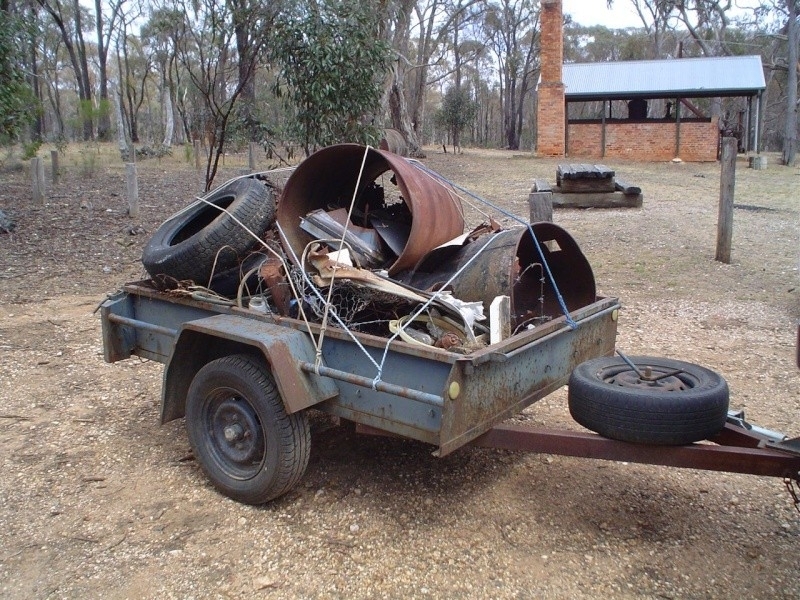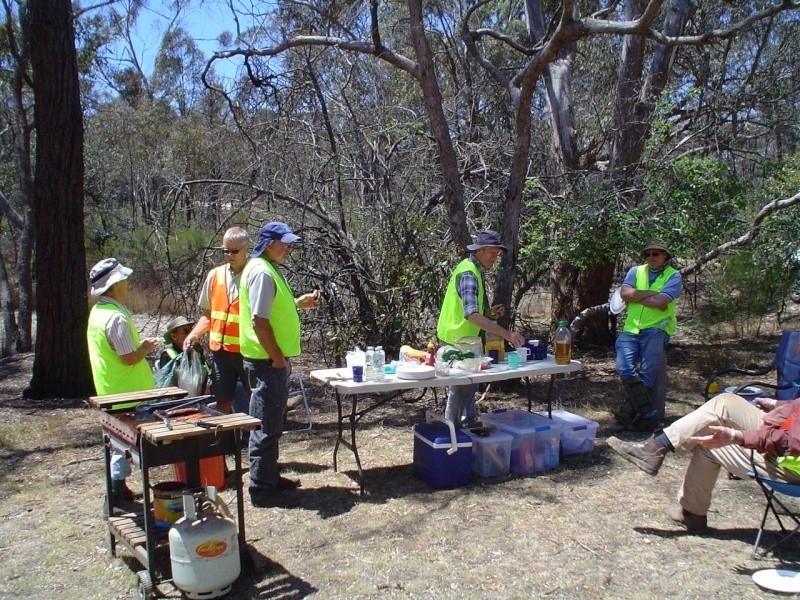Leaderboard
Popular Content
Showing content with the highest reputation on 03/23/2017 in all areas
-
Went out with a buddy Saturday and tried a couple of new areas. Full of trash. Got tired of digging trash with no gold see we decided to move on to another area that had been extensively drywashed in hopes of picking up a few scraps. Still a bunch of trash but I picked up the specie on a bench on bedrock under about 10 in of silt. Nice solid signal on the GPZ Same nugget, different angle. 3.3 grams Also found a half gram solid piece. Chris6 points
-
Well I for one, and possibly a few others here in the States, am looking forward towards a new gold season down under. I know this subject has come up in the forum before, Taking your detector with you overseas, but its not been a stand alone topic and I have been unable to dig it out of the old topics where this issue has been discussed easily. So I've brought it up this way so maybe it'll be easier for others to find in the future when the concern comes up. Our detectors and associated gear are rather a pricey point of pride regardless of whether your just coin shooting or going bush. I am asking all with experience in this arena to pitch a comment so as that future traveler can find a comfortable accommodation on how to carry their gear. My way is not the best way but it works well and I understand the risks. Having taken my gear, both prospecting and coin shooter, overseas many times now~ primarily to Australia but also Japan and Europe~ I simply break it down and pack it well in the suit case as check bags. I carry the control box with me on-board with my carry on and in the case of the Zed I tape off the contacts of the batteries and carry them as well and declare them at the check in, present them for inspection *sometimes they re-tape them*, and go on about my business. With the advent of lithium batteries its important that you do check with the air carriers you plan to use on any limitations and I suggest strongly that you discharge the batteries to at least 50% prior to travel. This lessens the chance of any problems with the batteries and its a feel good you can tell the front desk if asked. Lead acid batteries like the old Humpy for ML's older SD/GP series should just be purchased on the other side as they are cheap enough however I have gotten them thru in check bags as well in the past. Other power supplies can be treated similarly. Now having said that there is the type of luggage to look for when traveling. First off measure the longest and widest parts of your detector or other gear, like a small pick, so you can obtain the right size bag. Look for one that has a solid back frame, soft frame luggage will not do, or if you have the cash a hard case. Bear in mind that you want to keep all bags under 50 lbs or you will run into fees and in some cases not be allowed to take them at all. Hard cases and Otter boxes are heavy. Due to weight I've had to repack a few times right at the counter just to get things thru even wear extra coats and put socks in my pockets to get thru. In the case of Australia you will want two cases however one can be smaller. Also look for something with solidly mounted wheels and collapsible drag handle. Expect to transfer planes~ those wheels will be important. I also pack an extra belt into the outer pocket of one so I can strap them together at the soft handles for transport, notch it to fit ahead of time as you wont have your pocket knife with you when the time comes. The solid frame back is needed to protect from flexure and impacts as the baggage is handled~ and it will be~ and your cloths will be the packing. Got bags, ok, so lets pack. A towel, pants or jacket is the first layer about an inch of padding off the rear frame. Now the coil/coils with clothes between them. Rods go in towards the middle. Use socks and shirts around the outter sides of the bag and between gear pieces. If you are taking a pick tuck it to the side and wrap it with jeans. *Just stick it down a leg and wrap the top well*. Your last layer will be mostly cloths about 4 inches thick and when I carry my pan it sits on top. As I said with Australia I carry two bags. I split my detector assemblies/gear and coil between them. Someone get nosy or a bag gets lost its only a partial loss and cheaper to replace than if a whole bag goes for walk about. Having stuff stolen is the Risk and should never be taken lightly. I know you wont like I wont.... its a pricey point of pride. The risk is also why I carry the control box. In the case of thieves they wont want the bits.... usually. Lost bags are in the next paragraph. Last point. Use those identity tags at the front desk and mark your bags with a distinctive bit of something ( ribbon, bungie, spray paint, ect). I have never lost a bag but they have wandered. That tag and bit of distinctive something, in my case its a chunk of black and white bungie knotted very securely to the handle, aid greatly in tracking down your wandering luggage. On the carousel at the airport all that luggage looks the same as well. Also TAKE A PICTURE of your bags and keep it on your camera or phone. Again if you have ever lost a bag when you go to report it they are going to give you a placard with a whole bunch of luggage and ask you what it looks like... if your bags are new then its confusing. Always expect to stay a day or so at your final destination. Why? Because if that bag(s) wander you'll need to stick around for them to catch up. Airlines have always been good about getting my stuff to me even if I have had to wait a day or so... dont get frustrated~ just keep it in stride, I know your tired and its been a long flight~ if you end up having to track you bags back to you. Its not the person at the kiosk who needs to be your lightning rod if things go poorly. Remember they work for a living too. Now having said all that there apparently are some new restrictions for carry on electronics so I will add this : Check your route and avoid any legs that go thru the middle east or Africa. Lately I've been flying Quantus out of Dallas to get to Sydney but there are alternate routes that take one thru Dubia and a couple of other spots. The A380 aircraft is a good ride, I kinda miss the 747, so plan appropriately as with the new restrictions you may be forced to pack everything in your check bags. Keep your self informed and pack well. All will be good ;) Thanks for reading. DD5 points
-
I learned to use the stars and the sun. My father was a sailor and insisted I learned how to get home. I encourage others to learn also. The first sailors used star charts and those haven't changed is thousands of years. Know the stars and change yours. Cheers John4 points
-
Over the years I've found I can go both ways however my preference is that I have some company back at camp. In the States going it alone is not a big deal to me *unless I'm down near the border of Mexico* but in Australia its a different story. My first go down under, in Victoria, I learned the value of having a mate you could get back to and share your experience's with. It gets lonely out there. This last season, 2016, I was well and truly on my own for up to two weeks at a time in some remote areas. My only relief was coming in for supplies and a day or two in the caravan park. But out bush its a bit of an irritation to worry about your camp, getting injured or just getting lost and not having much in the way of back up except your pick and native ingenuity. Camping alone also limits, for me, my overall range because of those worries. Granted camping up with friends and mates makes things easier but when I prospect I will move off to be alone often walking for K's in my search. Seen gold fever to many times to ever be comfortable, with exception of a select few who are immune like me, with group hunts. If there is more than two people in an area I will move off. This last season I stood my ground a few times when other prospectors unsuspectingly dropped practically on my camp. It was friendly but my own native distrust sent alarms off that were hard to calm down. Having company at camp also helps when your not finding anything. With good friends and mates we support each other and that's not just for the gold but in practical ways as well. Someone puts the billie on the fire in the morning, wood for the fire, bit of bacon or butter to help tucker along and stories or just complaining about the flies.... little things that make life enjoyable That aside there were a lot of very peaceful days and the solitude did me loads of good. Its a tricky balance.3 points
-
I think it's a matter of finances for most companies. As volume in sales drops, they have to lower the price to keep the bottom line looking good. This happens when companies don't bring new products to market or constantly release "rehashes" of old tech. The great thing about this is that as newer companies advance technology, the dinosaur brands will have to keep up. Or they will die. Just dropping the price isn't going to be enough to keep things afloat - you gotta play ball and offer something the world hasn't seen before. It's a good thing for everyone - the aging workhorse machines become cheaper for entry-level users, and the power users get new technology to play with.2 points
-
I find many people carry a compass but don't know how to use it. They don't know the declination for their area or even what declination is You must know if the direction you are walking is related to True north or magnetic north.... BIG difference on the West coast for sure. For example, if you have a declination of 20 degrees and walk 5 miles, you could be 1.8 miles from where you thought you were going..... You could still be lost!!2 points
-
I love being alone out here, absolute stress free not having to worry about someone else. My hardest decision in the morning is will I put pants on or not today. I see people when I do the weekly or 2 weekly trek into town for supplies and even then it's straight in and straight out again. If I do happen to do myself a mischief, I have no doubt I'll be found sooner or later, just follow the smell.2 points
-
I wont name and shame them, but if it happened again I would. Tour operator was made to drive back about 500klms or so to clean it up.2 points
-
As you may see from my profile that bushwalking and kayak are some of my hobbies and have been for many years. The main thing is not to PANIC this is easy achieve by looking/studying the map of the area. I remember a mate (Tom) got lost. He put his GPS down while digging, and then walked off with out it. He searched for it for hours getting more lost as time passed. Finally he got on the CB/Radio and let us know his was geographically embarrassed. After finding that he had not crossed any 4WD tracks I was able to get him to put his shadow at 10 0'clock so that he would hit a hand rail (track). He let us know when he hit the track and was rescued. Handrails have not been mention here but are a major feature of a map. .......LINK 1....... .......LINK 2 ....... click on.... page 127 >> The other tip don't depend on others for navigating keep your eyes open. I still carry a GPS, PLB, Light. Lighter, batteries. and first aid and water.2 points
-
Four or five days at a time and frequently over several decades of autumn prospecting trips. I don't mind at all, and do far better hunting alone. My wife joins me in the north country at least once each prospecting season for a week, usually the last full week... I've always suspected this is to ensure I do pack-up and head home before real winter weather sets in. Either way it's all good. Jim.2 points
-
Just like anything prevention is better than cure. Always being prepared never hurt or got anyone lost in the past. I have a day and a half extra food supply stashed in my boat as a precaution and periodically change it out. Same as my pack when prospecting compass, gps, spare batteries and when wandering always look up from time to time and take in all the landmarks you can.2 points
-
Never Mitchel...... I know where I'm going and have uptodate mapping of the area (tengraph, oziexplorer, the happy propsector app) and someone always knows my approx area and my ETR. I detect alone but mostly with two mates. We have two vehicles and are both decked out to stay out for a month. It's when you are out of the car and walking for km's from camp that you can come unstuck. Hell you can walk 50m from your car and be lost out there, no landmarks, just thick dense scrub ..... Cheers BB2 points
-
Tom I'm guessing you detect in the USA. If you are not serious about getting lost over here in OZ - mate you are dead .... no joke. I've got every safety device known to man. The handiest is a simple cigarette lighter. Get lost - find the biggest tree in a clearing and light the sucker up ...... then pray. Cheers BB2 points
-
Thank you Glenn! Too often these sorts of questions get asked, and no final answer is forthcoming. You are that rare guy to do just that, and now we all just a little bit more about what can be found in the field. Thanks again. http://meteorite-identification.com/Hot Rocks/ferromanganese.html http://www.apratiminternational.com/ferro-alloys.html2 points
-
I took both specimens yesterday to the Colorado School of Mines and had Bruce Geller who is the Museum Director for identification and you were both correct, they were not meteorites. The specimens were identified as ferromanganese. Ferromanganese is used as a deoxidizer for steel production. Thanks again for your help!2 points
-
Getting ready to plan a trip near Yuma Az area digging "trash"... I have a target in mind I would like to find... The quest is to find some Apache Beer cone tops buried in trash pits in desert sands. From knowledge of others digs condition of 1930s cans has shown good promise and recovery of quality specimens of other brands has been promising. I am drawn to Yuma Arizona area because in researching old newspaper ads I found this was one of just several cities they marketed Apache Beer for 6 months in 1936. Below is a newspaper ad from 1936 and a very clean example of the Apache Beer cone top which recently sold for 28,000.00 and you can see here in link http://breweriana.com/beer-cans-cone-tops/apache-export-beer-cone-2881/ Not a typo! those old cans actually sell for insane values. My reason for posting this is to bring attention to just how rare some of this trash is to collectors and also to get some opinions or intel from anyone who might suggest areas I may find open to digging around the Yuma area. As well, has anyone else dug old beer cans and kept them or left them behind in the past?1 point
-
Great tips everyone. Thanks also to geof_junk for those links. I'm one of those people that have a compass in the backpack and don't know how to use it. Going to make an effort to learn after reading this thread. I carry a GPS with spare batteries (charged) as well as a PLB, light, whistle, compass, lighter and snake bite kit in my backback. Once I got lost and it was only about 300m from the car. I'd walked up a hill to take a look only to lose my bearings on the way back down. The bush was pretty thick and everything started to look the same. After back tracking a couple of times I knew I was lost, and sunset wasn't far off so I started to panic. I then noticed that I had the GPS in my hand, after marking the spot at the car for a look on google earth when I got home. I'd actually never used the GPS to find my way back as it was only new. Fortunately, I worked it out and within 3 or 4 minutes found the car.1 point
-
Interesting, but I don't think I will hold my breath for that nugget detector. It will come out right before that time machine I want to go back to California in 1820 (the gold rush started in 1848)!1 point
-
Of all the detectors I have ever used I would have to rate the White's MXT as the most user friendly. Whites wide box design was a favorite of mine for just staying put when placed on the ground, never a roll over. Simple knob controls, clearly marked as to function. I am not impressed by the trend to meaningless icons. Condensed operating instructions on bottom of box. Easy drop in battery pack. Large clear display without too much clutter. Headphone plug in middle of rear under elbow. The MXT is a bit heavy but Whites could put a smaller circuit board and smaller battery pack in the same box. If the board took half the room and a drop in 4 cell AA pack the height and weight of the box could be reduced yet still retain that stable wide body. Maybe skinny up the pod a bit. Paired with a 950 coil or perhaps even an 8" spider concentric it could knock a solid pound or more off the weight and still retain the best features. That would be an updated MXT worth buying. There will probably be a market for a retro knobs type detector for quite a few years yet.1 point
-
I generally hunt with one or sometimes two other persons most trips, at base camp we leave two vehicles and a enclosed trailer sitting, so its good that we alternate checking on camp during the day as we range far and wide with a bike and quad during the day. We each hunt in different areas alone generally which still gives us that solitude, but regroup for lunch and dinner to discuss finds, areas to hunt,etc. Most our hunting areas we will see maybe 2-6 people in a week total, but you never know who is roaming around the hills, so I think its best to have a hunting partner in the general area with radio and or cell communication.1 point
-
How to Not Get Lost: I find remnants of a tobacco can or old food cans and fill them with water acquired from a solar still. Next, I grab a few small leaves from a local mesquite tree, float that on top of the water, and place a boot tack on top of the leaves to point the way to north. (Makeshift compass) Or I just use my GPS. Seriously, though, you should always carry a compass. GPS compass is not always accurate and batteries go dead.1 point
-
Well done. Beautiful specie and i am fan of quartz and gold species.They my favorites, Go get some more GoldEN1 point
-
Thanks! Steve for the additional information. When I found the specimens I thought for sure I had meteorites and reading through the information you provided I wasn't the only out thinking they had the real thing. Unfortunately in the area where I live I will probably find more. The best thing that came out of this is the knowledge that a person gains through the process of finding the answer to the question. The help from people on this forum makes this forum one of the best out there whether they are a novice or seasoned detectorists.1 point
-
That is a very nice specie there Chris. Congrats for your nice find and thanks for sharing. Cheers. Mike.1 point
-
Just a beautiful piece Chris, I love the look of gold against creamy white quartz. Congratulations and WTG!! Jim.1 point
-
I would suggest joining a local orienteering club. learning to use a compass and map will serve you well./1 point
-
Before SDC 2300 ever came on the market I had seen the ad about it in Lost Treasure. Well I jump on the band wagon and posted it on a forum. Nobody would believe me and I told then what mag. it was in but they still said i wasn't telling the truth. Well today I got my May issue of Lost Treasure and I couldn't find a word on the Monster 1000. I have never seen Minelab so tight lip about a new detector as they have on this one.If this detector is as hot as Minelab is tight lip on it it's got to be a Monster. I'm like a kid in a candy store in that I put my money on the counter and now give me my candy but in this case it's a detector. Chuck1 point
-
Before I say another word I need to do this. Steve I need to apologize to you for taking what you said the wrong way. Of all things I really don't know why I did. Here you just wanted to help me and I took it again I say the wrong way. I'll try next time to put brain in gear before putting mouth in motion. Again I'm sorry. Chuck1 point
-
I would never suggest relying solely on a GPS. I go without more than with one because most times getting lost just isn't an issue. I have however spent most of what is getting to be a long life wandering around in the wilds of Alaska. I never got so lost I would have never got home, but flat gray featureless skies and dense forest has left me with several tales of ending up way off the mark and extra miles traveled. I certainly would never rely solely on a GPS but I also think relying solely on ones own advanced woodsmen navigation skills is an even worse idea. You only have to get turned around once for things to go astray, and possibly in a very bad way. Get a GPS, learn how to use it, and for gosh sake learn how to manage batteries and backups. They are one of the best things to ever happen for people who really are in the middle of nowhere. Or just stay in places where you basically can't get lost.1 point
-
Don't take this the wrong way Tom, but if you can't be bothered to do even the most basic things to not get lost then you will eventually. The best answer is not to get lost in the first place, and the best way to make sure that does not happen is get a GPS. Sounds like you already have one and any decent cell phone includes one these days. A cell phone with a GPS not only gives you mapping but in many locations a signal to call for help if you climb high enough. There are very simple GPS units designed just for getting you back to camp or a car like the Bushnell BackTrack For true off grid I have a DeLorme InReach Satellite Text Communicator1 point
-
I can never figger out my GPS or else the battery is always dead or I left it at home...hmm, what about boyscout navigating..the sun rises in the east and sets in the west and moss grows on the north side of a tree stuff?1 point
-
1 point
-
1 point
-
1 point
-
I use the screwdriver probe. If I can't find the target in a reasonably amount of time I break out the TRX or Sunray. If they don't hit on the object then I'll cut a three sided plug. I guess it might be faster to start with the electronic probe but I learned to probe before I bought an electronic probe so I got pretty good at it. A good probe transfers a lot of information to your hand. The hard part is being patient and not just jamming the thing into the ground. Good luck on your ring hunts! HH Mike1 point
-
1 point
-
Debbie the Mine lab representative at the recent GPAA Shows has said April repeatedly and a lot of the dealers are saying the same. I think you can rely that it will be April. I don't know what day but even April 30 is only a little more than a month away. Africa is not a place for prospector tourism. You will find almost no one who speaks English. However I can heartily recommend Australia as a fine country with great people and good gold. They have services and cities much the same as those in the US. Plus in Australia they speak a language that is almost English.1 point
-
My detectors are, have no problem. Your cars and the weird place they put the steering wheel however... I nearly killed more than a few people in Florida a few years back1 point
-
I go away 95% of the time with my father for weeks at a time approx 5 times a year. He took me out enitially and I got gold fever from the first trip we went on. When we get to the camp site and have set up we both go our own seperate ways each day because of interference between the zeds. We call up each other at certain times on the 2 way radios during each day to make sure everything is ok. We go nugget hunting during sum nights together and only take 1 detector. We tune the 2 WM12s into the one machine so we can both listen for targets together & decifer signals. It's great when you've got your own personal digger? Its a really different feeling detecting with family ( layed back, take your time, talk about settings on detector, show your gold & where you got it ) When detecting the 5% of the time with my mates I feel there in competition against me to get to the gold before me. They don't talk much about settings, what they got, what creek they went up. But they are more than happy to listen to me and bleed me of all my information. So yes I prefer to nugget hunt on my own, or with my dad not far away in the next valley. Cheers ozgold1 point
-
I never detect alone and dont feel comfortable to be in the bush alone. For me socializing hobby and 99% of time i go with another mate.We go in different directions but not too far.Have radios to communicate and i have couple mobiles phone with different provider just in case to have phone signal. I could maybe contemplate to detect close to road and in surfaced area with 2300. i dont find it enjoyable to detect alone. We detect, have lunch, call each other if any interesting signal and in general enjoy detecting. Stay safe and its good idea to let someone where you are detecting if you heading alone. GoldEN1 point
-
When prospecting I prefer to wander around alone and getting the feel for the area. Although it is handy having another vehicle around if yours is a bit dodgy ?1 point
-
A positive mindset can make a massive difference. I call it the gold mode switch. You need to clear your head of daily stresses: what's happening at work, the bill you got charged twice for, that lawn mower that keeps breaking down, that oil spill you promised to clean up a month ago....you know what I'm talking about. All of that needs to get dumped for a moment, and then flick the brain to Gold Mode.1 point
-
I agree with all the above comments play a certain roll why some find more gold than others. But yeah time on the ground is certainly the main factor in my view. We record all our finds and over time can paint a picture of where our next run of shedding gold should be.Sometimes it can take minutes, hours or even days to find that first bit in a new area. Time on the ground and positive frame of mind are high on the list in my view.1 point
-
Hours in the field can make up for lots of other metal detecting deficiencies.1 point
-
# 3 is probably the most under stated. Looking for gold is not quantum physics nor is it splitting atoms. You have to spend the time. You have to have the time. If you don't spend lots of time looking for gold you will not find much it. You can spend lots of time researching on line, reading books, old newspapers etc.... but boots on the ground and lots of time to do this is what it takes... Especially when patch hunting with a metal detector. I can only hope and dream for more time soon. strick1 point
-
I've only been detecting for a little more than a year. I've been prospecting for almost 20. I've detected with some who are very good and have done it almost 40 years. I can only say one thing. And it's the same with any business. Location Location Location1 point
-
I wish i am good with detecting like i am with fishing,. Maybe been born on island has to do with it.Give me a hand line and i will never be hungry in my life, Give me a detector and i would not survive for long. I always believe its is a person behind detector.Still you need a good tool to do the job. And agree you have to be in a gold (fish zone) or you are wasting time. I think most of average detecting people (myself included) know 5% of our machine capabilities.(same like we know about our mobile phones). Maybe because we do not take it so serious, maybe cos its just a great hobby to relax and escape work and city and maybe because simple we dont have to.. Detecting is a journey not a destination.Probably because you will never stop once you reach you goal or target.You will need more(hence gold fever).So journey continues...... GoldEN1 point
-
As a kid I was a Boy Scout. We were taught about the outdoors and camping by people who tried to 'leave no sign' when you left your camp. What does 'leave no sign' mean? (It is not about spray cans (gang tags) or graffiti 'Kilroy was here' although that is part of it.) 'Leave no sign' means if you disturb the surface of the ground you try to return it as best you can to the way it was when you arrived. Basically ... you think about filling your hole as you are digging it. You take off the first layer (the humus or patina) and put it in a separate pile and then you go about your digging. When you are done with the hole you put the first part back last and arrange the surface to 'look' like the ground around with the same surface level. You also anticipate what is it going to look like after a rain. That is the Boy Scout way of rearranging your entire camp including the fire pits if you are not in a dedicated camping spot but certainly with all your holes for deification and the like. I think miners need another incentive. Miners should try and hide their patches! How many times has someone found your patch because they saw dig holes? If you did a better job of 'leave no sign' then your patch might still be producing for you. Put the leaves and twigs back after you dig that deep hole mates! Mitchel1 point
-
People are same regardless where you live on this planet. If they can get away it many try and do. It comes in my opinion is how you were brought up at a home. Seems many lack in this department. As i was not born in Australia i was blown away but untouched beauty of this continent. I love nature and nothing in this world can beat it or create something better then nature. I do not necessary love all creatures when i go detecting but i believe they are put on this planet for a reason and they do their own bit and are important part of it.(even a little spiders) My impression of this row beauty of country quickly disappeared once i went detecting for a first time. Amount of rubbish intentionally left there was unbelievable. i am glad that many times through our detecting association we have clean up days.We get together with park ranger do our bit and have a nice bbq at the end. I like this hobby and what it has to offer.Friendship ,nature, camping, talks around camp fires, laughs, gold stories, escapes of busy city life etc. Apart from holes left over (which most of us fill up ) there is one thing i really hate with passion. Detectors who find a piece of rubbish then leave it again in a hole and fill it up. Sure enough i am enough experienced now to recognize already dig holes but i just want and take out that piece of rubbish other leave. These people are not good for this hobby and i find this quiet mean as it is done on purpose. Could be sheer laziness but i have my doubts. Please do the right thing when in a nature.Respect every bit and it will give u back all what you expect and tenfold more. Take care and stay safe. And dig all. GoldEN1 point
-
It is a problem in the U.S. The last couple meetings I spoke at I raised the subject rather forcefully - the subject tends to get me worked up, as I see it as an attack on something I am very passionate about. The simple fact is more and more locations are made off limits to metal detecting and prospecting, and we are often our own worst enemy. People digging up trash and leaving it next to an open hole is the surest way to provide evidence to those who wish us gone that we need to be gone. Digging holes deep enough to actually be dangerous to humans and livestock and leaving them open? That is inexcusable. I started out detecting parks and so I got in the habit from my first detecting days of trying to be invisible while I detect, and of leaving no sign when I am gone that I have been there. I do worry when detecting clubs with a dozen or more people descend on a local park as a group - it is far too visible. I am always off in a corner by myself, or detecting in bad weather, or at odd hours. If people approach I wander away from them. I have shown up at places, seen damage left by others, spent all my time repairing it, and then left not wanting people to think I did it. I pick up trash dug and tossed by others constantly. I have backfilled innumerable holes left by other prospectors in the field. Once areas are closed it is near impossible to get them opened up again. I hate to be a pessimist but the slow closing of areas is almost inevitable. We can harp on this forever but there are just too many lazy, selfish people out there. They think, especially when out in the desert, what harm can a few holes do? In the big picture it is insignificant. But when people hit places one after another over a period of time some places end up looking like a war zone pummeled by mortar fire. The real issue is not the actual damage to the environment, which usually is insignificant, it is the political damage done and areas closed to everyone. Mining camps can be real bad. There was one set of GPAA claims in Alaska where so much junk was left that the owner spent days hauling it out by the truckload - after he shut the access off forever. The last time I hiked down into the canyon of the American River in California volunteers were there piling up all sorts of junk left in mining camps from just the last few years. Huge piles. The people haul it down in, and then just leave it all behind. After watching for years I have come to the conclusion all detectorists give lip service to filling holes, but as soon as nobody is watching very many do not fill their own holes or take their trash with them. We really are our own worst enemies. If you are not filling holes and leaving trash about, you are my enemy - you are helping get my access cut off, and I take that very personally indeed.1 point


